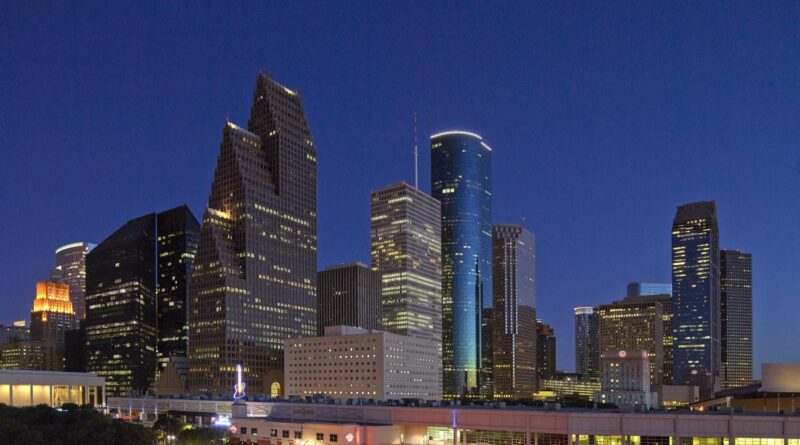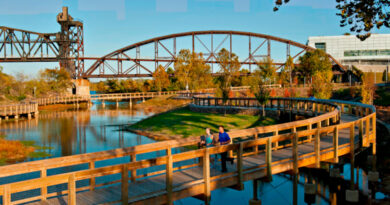History of Houston Texas
Houston, Texas, the fourth-largest city in the United States, is a vibrant metropolis known for its energy industry, cultural diversity, and space exploration. From its humble beginnings as a small trading post to its emergence as a global city, Houston’s history is a tale of ambition, resilience, and innovation. This article explores the rich and complex history of Houston, tracing its development from the early 19th century to the present day.
The Founding of Houston
Houston was founded on August 30, 1836, by brothers Augustus Chapman Allen and John Kirby Allen, two New York real estate developers. The Allens purchased 6,642 acres of land along the banks of Buffalo Bayou, with the vision of creating a great commercial center. They named the settlement after Sam Houston, the hero of the Battle of San Jacinto and the first president of the Republic of Texas. The Allens promoted their new town aggressively, touting its potential as a major port city due to its proximity to the Gulf of Mexico.
Houston was incorporated on June 5, 1837, and quickly became the temporary capital of the Republic of Texas. The city’s early growth was driven by its strategic location and the burgeoning cotton industry, which relied on Houston as a key trading hub. Despite the challenges of swampy land, mosquitoes, and frequent flooding, Houston’s population grew steadily, reaching 2,000 by 1840.
Houston and the Railroads
The arrival of the railroad in the 1850s marked a turning point in Houston’s history. The Buffalo Bayou, Brazos, and Colorado Railway, the first railroad in Texas, began operations in 1853, connecting Houston to the interior of the state. This development solidified Houston’s role as a transportation hub and spurred further economic growth. By the end of the 19th century, Houston was the center of a vast rail network, linking it to major markets across the United States.
The expansion of the railroads also facilitated the growth of Houston’s cotton industry, making the city one of the largest cotton markets in the South. Warehouses, banks, and other businesses flourished as the city’s economy diversified. The railroads not only brought economic prosperity but also connected Houston to the wider world, paving the way for its future growth.
The Discovery of Oil
The discovery of oil at Spindletop near Beaumont in 1901 transformed Houston into a major player in the global energy industry. Although the Spindletop gusher was not located in Houston, the city quickly became the epicenter of the oil industry due to its established infrastructure and port facilities. Oil companies and related industries flocked to Houston, bringing jobs, investment, and rapid population growth.
The Texas Oil Boom of the early 20th century fueled Houston’s expansion, with new skyscrapers, businesses, and neighborhoods springing up across the city. The burgeoning oil industry also led to the establishment of the Houston Ship Channel, which opened in 1914. The channel allowed Houston to handle large ocean-going vessels, further cementing its status as a major port city. By the 1920s, Houston had become the largest city in Texas, and its economy was increasingly tied to the fortunes of the oil industry.
The Rise of Space Exploration
Houston’s association with space exploration began in 1961 when NASA selected the city as the site for its new Manned Spacecraft Center (later renamed the Johnson Space Center). The decision was influenced by Houston’s strong political connections, its proximity to key universities, and the availability of land. The establishment of the space center marked the beginning of a new era for Houston, as the city became synonymous with the American space program.
Throughout the 1960s and 1970s, the Johnson Space Center played a pivotal role in the United States’ efforts to explore space, including the historic Apollo missions that landed the first humans on the Moon. Houston’s involvement in space exploration brought international attention to the city and contributed to its growing reputation as a center of science and technology.
The famous phrase “Houston, we have a problem,” uttered during the Apollo 13 mission, further solidified the city’s place in the annals of space history. Today, the Johnson Space Center remains a key part of NASA’s operations, and Houston continues to be a leader in aerospace research and development.
The Civil Rights Movement in Houston
Like many Southern cities, Houston experienced significant social and political change during the Civil Rights Movement of the 1950s and 1960s. The city’s African American community played a crucial role in the struggle for civil rights, organizing protests, sit-ins, and legal challenges to segregation and discrimination.
One of the most notable events in Houston’s civil rights history was the desegregation of the city’s public facilities in the early 1960s. Houston’s business and political leaders, recognizing the potential economic impact of prolonged unrest, opted for a relatively peaceful and gradual approach to desegregation. This strategy, sometimes referred to as the “Houston way,” helped the city avoid the violent confrontations that occurred in other parts of the South.
However, the fight for civil rights in Houston was far from easy. African American leaders, including the Reverend William A. Lawson and attorney Barbara Jordan, worked tirelessly to advance the cause of equality. Jordan, who later became the first African American woman from the South to be elected to the U.S. House of Representatives, emerged as a national figure during this time.
The Civil Rights Movement left a lasting legacy in Houston, paving the way for greater political and economic opportunities for the city’s African American community. The movement also contributed to the city’s reputation as a place where diverse groups could work together to achieve common goals.
Economic Diversification and Growth
While oil has long been the backbone of Houston’s economy, the city has successfully diversified its economic base over the past several decades. The 1980s oil bust, which saw oil prices plummet and led to a severe recession in Houston, underscored the need for diversification. In response, city leaders and businesses worked to attract investment in other industries, including healthcare, technology, and manufacturing.
The Texas Medical Center, one of the largest medical complexes in the world, has become a major economic engine for Houston. The center is home to leading hospitals, research institutions, and universities, and it attracts patients and medical professionals from around the globe. Houston’s healthcare industry has helped the city weather economic downturns and has positioned it as a leader in medical research and innovation.
The Port of Houston, one of the busiest ports in the United States, continues to play a vital role in the city’s economy. The port handles a significant portion of the nation’s cargo and is a major hub for international trade. Houston’s strategic location and extensive transportation infrastructure have made it a key gateway for goods moving between the United States and Latin America.
In recent years, Houston has also emerged as a center for technology and innovation. The city’s energy sector has embraced new technologies, such as renewable energy and advanced manufacturing, while Houston’s burgeoning startup scene is attracting entrepreneurs and investors from around the world.
Cultural Diversity and the Arts
Houston’s cultural diversity is one of its defining characteristics. The city is home to a vibrant mix of ethnicities, cultures, and languages, making it one of the most diverse cities in the United States. This diversity is reflected in the city’s food, music, festivals, and neighborhoods, each offering a unique blend of traditions and experiences.
The city’s arts scene is equally dynamic, with world-class institutions like the Houston Museum of Fine Arts, the Houston Symphony, and the Houston Ballet. The Theater District in downtown Houston is the second-largest in the country, offering a wide range of performances, from Broadway shows to avant-garde productions.
Houston’s cultural festivals, such as the Houston Livestock Show and Rodeo, the Bayou City Art Festival, and the Houston International Festival, draw visitors from around the world and celebrate the city’s rich heritage and creativity. The city’s diverse population has also contributed to a thriving culinary scene, with restaurants serving everything from Tex-Mex and barbecue to Vietnamese pho and Ethiopian injera.
Challenges and Resilience
Houston has faced numerous challenges throughout its history, from natural disasters to economic downturns. The city’s location on the Gulf Coast makes it vulnerable to hurricanes and flooding, and it has experienced several devastating storms, including Hurricane Harvey in 2017. The widespread flooding caused by Harvey resulted in significant damage to homes, businesses, and infrastructure, but the city’s response demonstrated its resilience and community spirit.
Houston has also grappled with issues such as traffic congestion, air quality, and urban sprawl. The city’s rapid growth has strained its infrastructure, leading to ongoing efforts to improve transportation, reduce pollution, and promote sustainable development.
Despite these challenges, Houston has continued to grow and thrive, thanks in part to its diverse economy, strong leadership, and the resilience of its residents. The city’s ability to adapt and innovate has allowed it to overcome obstacles and emerge stronger, making it a dynamic and forward-looking metropolis.
Houston Today and the Future
Today, Houston is a global city with a population of over 2.3 million people. It is a major center for energy, healthcare, aerospace, and international trade, and it is known for its diverse culture and vibrant arts scene. The city’s skyline, dominated by modern skyscrapers, reflects its economic power and ambition.
As Houston looks to the future, it faces both opportunities and challenges. The city’s continued growth will require careful planning and investment in infrastructure, education, and social services. Houston’s leaders are also focused on addressing issues such as climate change, economic inequality, and public health.
Despite these challenges, Houston’s history of resilience and innovation provides a strong foundation for its future. The city’s ability to attract talent, investment, and new ideas will ensure that it remains a dynamic and influential player on the global stage.
Conclusion
The history of Houston, Texas, is a story of transformation and growth. From its founding as a small trading post to its rise as a global metropolis, Houston has been shaped by the vision and determination of its people. The city’s rich history, cultural diversity, and economic power make it one of the most important cities in the United States and a place of endless possibilities.
As Houston continues to evolve, it remains a city that embraces change and innovation while honoring its past. Whether through its contributions to space exploration, its leadership in the energy sector, or its vibrant cultural scene, Houston’s impact on the world is undeniable. The city’s history is a testament to the power of ambition, resilience, and community, and its future promises to be just as exciting.
Discover more from City Towner
Subscribe to get the latest posts sent to your email.




